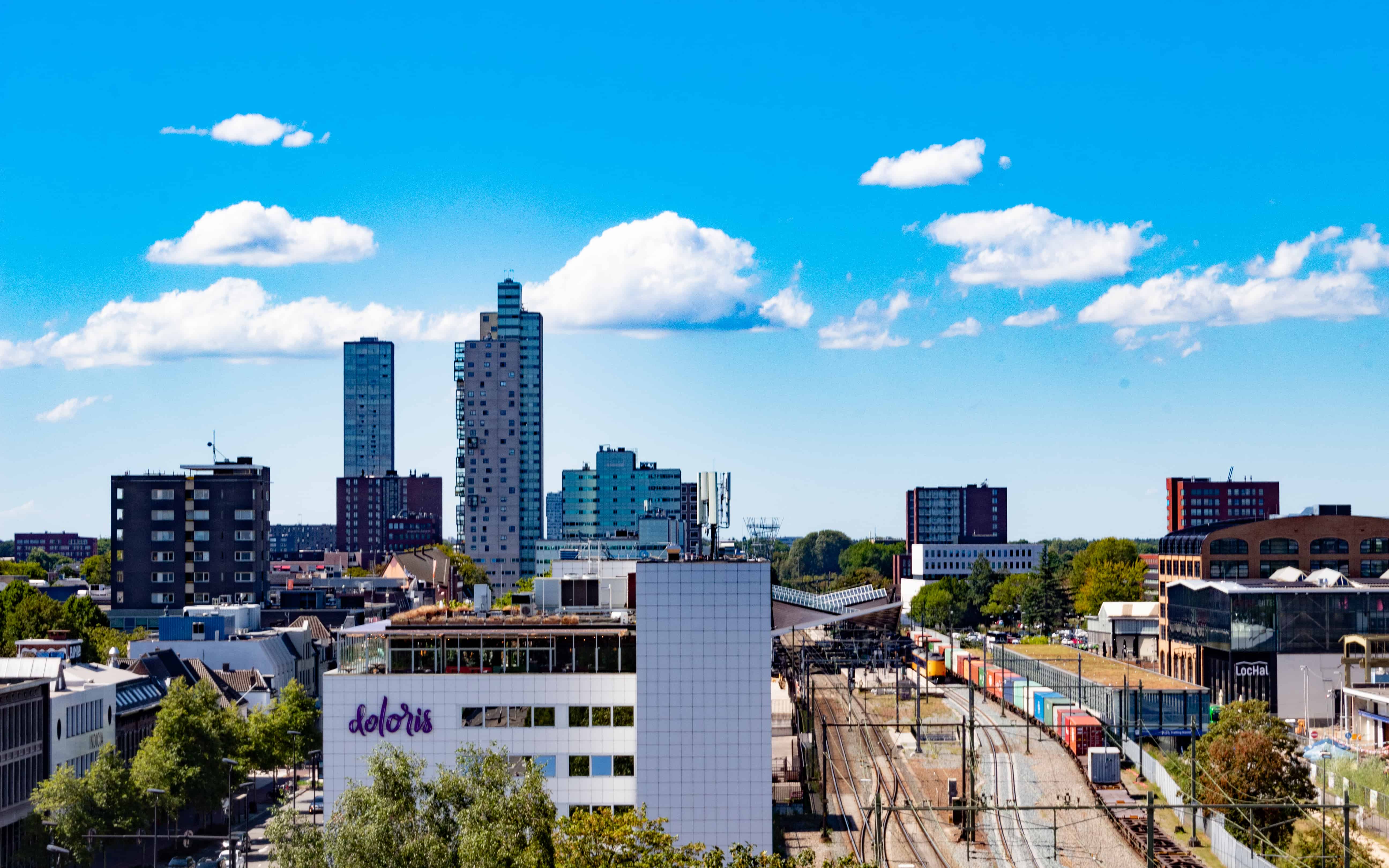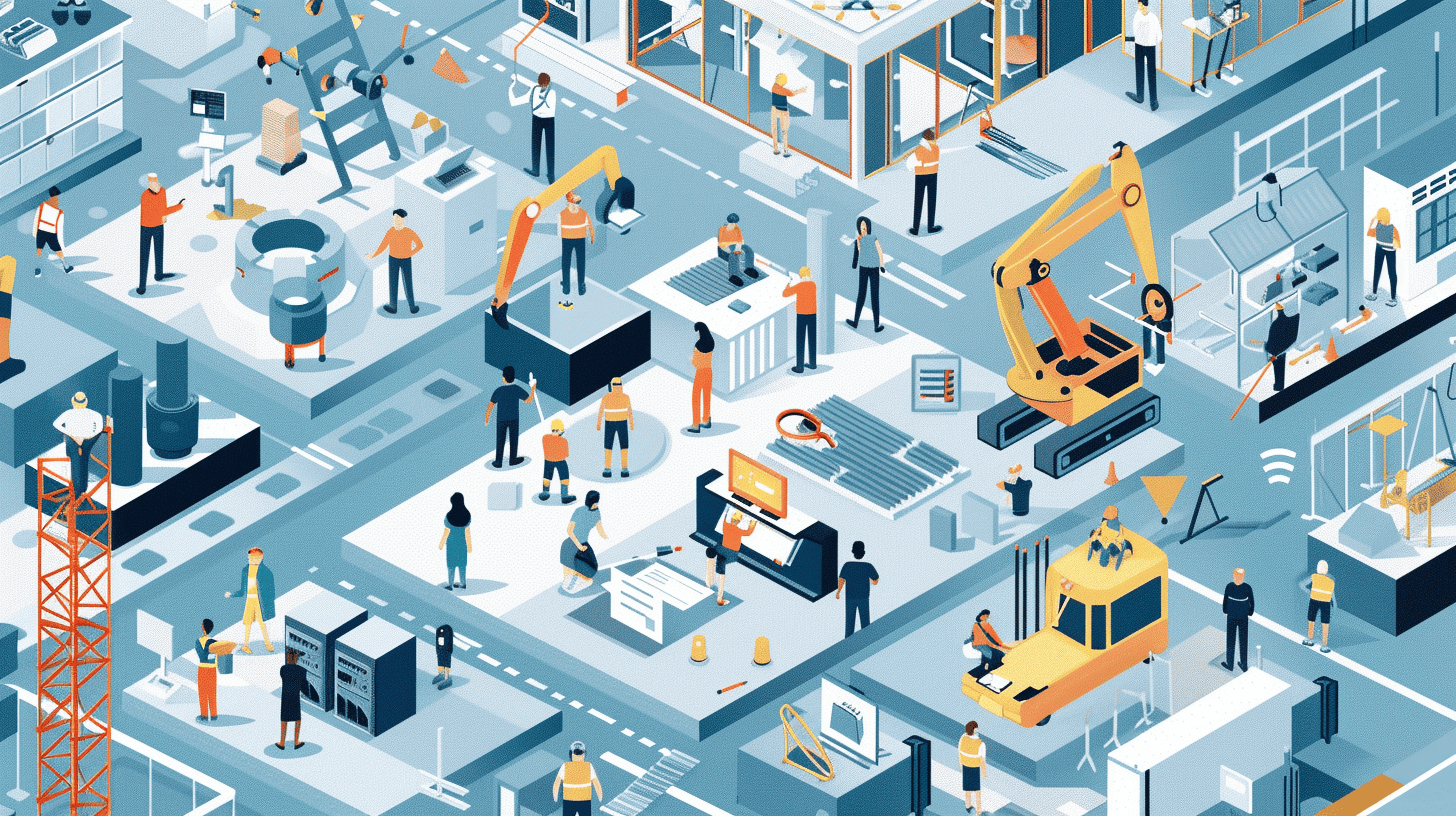
It is the Week of Broad Prosperity (Dutch: Week van de Brede Welvaart), with a day full of keynotes and workshops yesterday at the Brabant Provincial House to contribute to it from the entrepreneurial perspective. The question on the table for all speakers was how the contribution of Brabant entrepreneurs to broad prosperity could be expanded. There were contributions from VNO-NCW and Otto Raspe, head of RaboResearch Regions, Innovation, Sustainability and Entrepreneurship. With Raspe, who is also Professor of Practice for Broad Prosperity and Regional Economics at Tilburg University, we look at Brabant’s achievements and challenges.
- Brabant is doing well when it comes to broad prosperity, but there are also challenges.
- Both entrepreneurs and the university contribute to broad prosperity.
First the good news: although regional differences are not great, central Brabant is the national leader in the transition to the “new economy” in which broad welfare plays an important role.
What is Broad Prosperity from the entrepreneur’s perspective?
RaboResearch has defined seven underlying dimensions that influence a transition to the ‘new economy’:
1 New wealth: the extent to which companies define success not only in terms of financial value, but also in terms of social and environmental value
2 Real prices: the extent to which companies reflect negative externalities of their products and production processes in the prices they charge for their products and the investment decisions they make
3 Transparent chains: the extent to which companies have insight into what happens elsewhere in the chain in which they operate, take responsibility for this and communicate honestly about it
4 Inclusive entrepreneurship: the extent to which employees of companies, especially management and board, reflect society
5 Green energy: the extent to which companies use renewable energy
6 Biodiversity and natural ecosystems: the extent to which business activities do not threaten species diversity, thus ensuring that natural ecosystems can continue to provide what people depend on (e.g. drinking water and clean air)
7 Circular enterprise: the extent to which companies no longer exhaust non-renewable raw materials and continually reintroduce valuable residual materials into the system of production and consumption
The speech confusion surrounding the term ‘broad prosperity’ is that the term is certainly used in politics as a jack-of-all-trades, often with a false emphasis on a fairer distribution of wealth. Raspe: “It is not in the distribution of wealth among people, but in the broadening to social and ecology, but with the economy included. And it also involves paying attention to the future: do we solve the problem only for the here and now, or also for the there and later?”
Right behind Central Brabant (Tilburg and surrounding areas), Brainport Eindhoven and South Limburg also have a place in the top three. On average, companies in those regions are further along in the transition to a sustainable and inclusive economy. At the same time, Friesland, Groningen and Twente also score well. These regions have a lower economic density but are, on average, more advanced in aspects related to broad prosperity.
Based on the survey in which 4,500 companies in the Netherlands were surveyed, Otto Raspe sees three types of regions leading the way:
- the regions growing faster than average, such as Amsterdam and Eindhoven,
- the regions with a strong ecosystem, such as Twente and Brainport Eindhoven,
- the regions with broad prosperity as their goal, such as Friesland and Twente.
“Those differences became visible after we started plotting all the data of all those companies on a map showing the 26 distinct regions in our country. By indicating whether there are many frontrunners or many laggards somewhere, you gain insight into the distribution of willingness to transition across the country. And the nice thing about Brabant is that both the Brainport region and Midden-Brabant are among the regions with the highest scores: many leaders and few laggards. And for Brainport, they also have the most frontrunners in the country when it comes to that transition to a sustainable inclusive economy.”
Tilburg and Eindhoven
The fact that central Brabant scored high was a surprise to Raspe. “There are many socially-minded entrepreneurs there, who really work from the social task and very emphatically include the impact on their environment and their people in their choices. A bit like in Friesland, although there you see that the policymakers have already taken this course for some time. In Tilburg, it is somewhat more in the DNA of the companies themselves and somewhat less in government policy.”
For Brainport Eindhoven, on the other hand, that element applies much less. Raspe: “That’s right, it’s more recent there; that region has to rely on those other two points: strong economy and strong ecosystem. By the way, you see that reflected in society as well, with growing pains touching on broad prosperity.”
Free pass on excuses
RaboResearch reports attach great value to the entrepreneurial spirit when it comes to the transition to the new economy. Six ‘lessons’ are important here: entrepreneurship and leadership within companies themselves, structured and agile business operations, attention to (potential) employees, a steady and entrepreneurial government, a level (inter)national playing field and commitment from the entire chain.
While the first three can be directly influenced by the entrepreneur, this is much less true for the last three. Isn’t that immediately a licence for excuses? Raspe: “Yes, sometimes you do see that, for example with smaller companies that have to put in more effort to take the first steps at all. But ultimately, it is in the interest of every entrepreneur to make that turnaround. Everyone can see that the future is determined by governments becoming more regulated, by consumers demanding more from you, a supply chain making higher demands or because you want to have a company for your staff that creates those values, so that you remain attractive to young talents.” In short, Raspe says: “If you as an entrepreneur only focus on short-term material gains and don’t invest in that broader value, you might be out of business in five years or so. Your product will then no longer be wanted, or you may no longer make it, or you will not have been able to adapt your business model to high energy costs, or you will no longer be able to find staff.”

Full participation
There is nothing left to do, Raspe concludes, but to fully participate in the battle towards the new economy with broad prosperity. We are still far from where we need to be: the average Dutch company currently only scores just enough on this transition (a score of 5.6) and half of the companies have a score lower than 5.5. And despite Central Brabant’s relatively good position, there is still a world to be won there too.
Broader than profits and growth
Martijn van Gruijthuijsen, deputy minister for economy, finance and talent development, shares that view. “Brabant’s economy is running properly, but we know that more is needed than just economic factors to remain attractive for businesses and talent. Brabant needs to be a nice place to live, with enough greenery, a healthy living environment and nice places to meet. As we sometimes say: Brabant’s economy is serious business, but it must remain sociable. In Brabant, we think more broadly than profit and growth, but mainly look at companies that help us solve the common challenges we face. That’s also where Tilburg and Eindhoven complement each other well, the combination of high tech and high touch is very important.”
Role of education
Finally, besides business, educational institutions also play a vital role in promoting broad prosperity. Tilburg University deploys academic workshops as a means to achieve this. These workshops are set up together with external partners to generate knowledge that contributes to addressing social issues. In the coming years, the university will focus specifically on interdisciplinary research themes, including climate and energy transition, the labour market, welfare, health, and inequality. These research themes are guided by the overarching concept of broad prosperity.
In short: Both companies and education in Tilburg are actively committed to a promising future.








